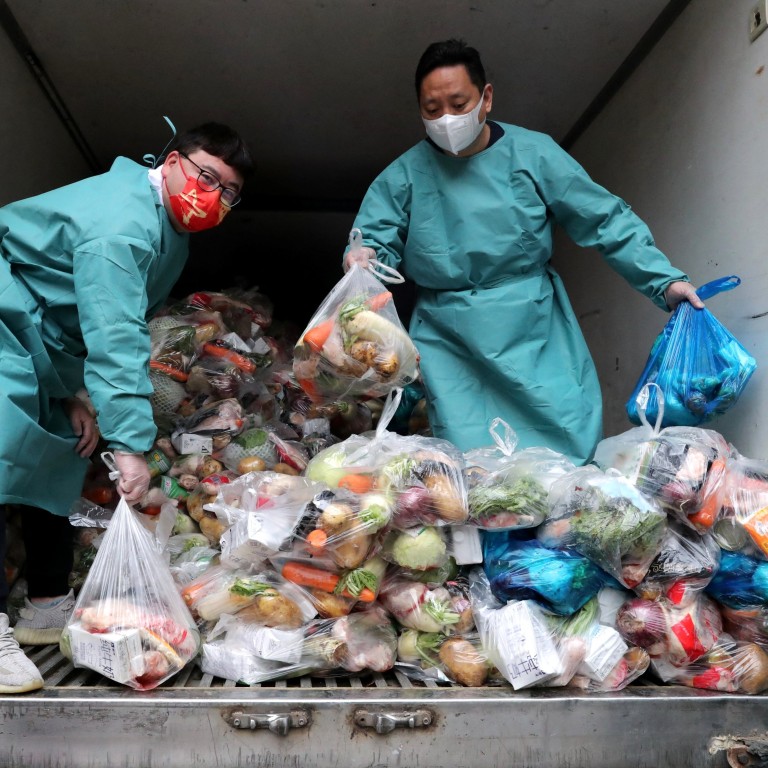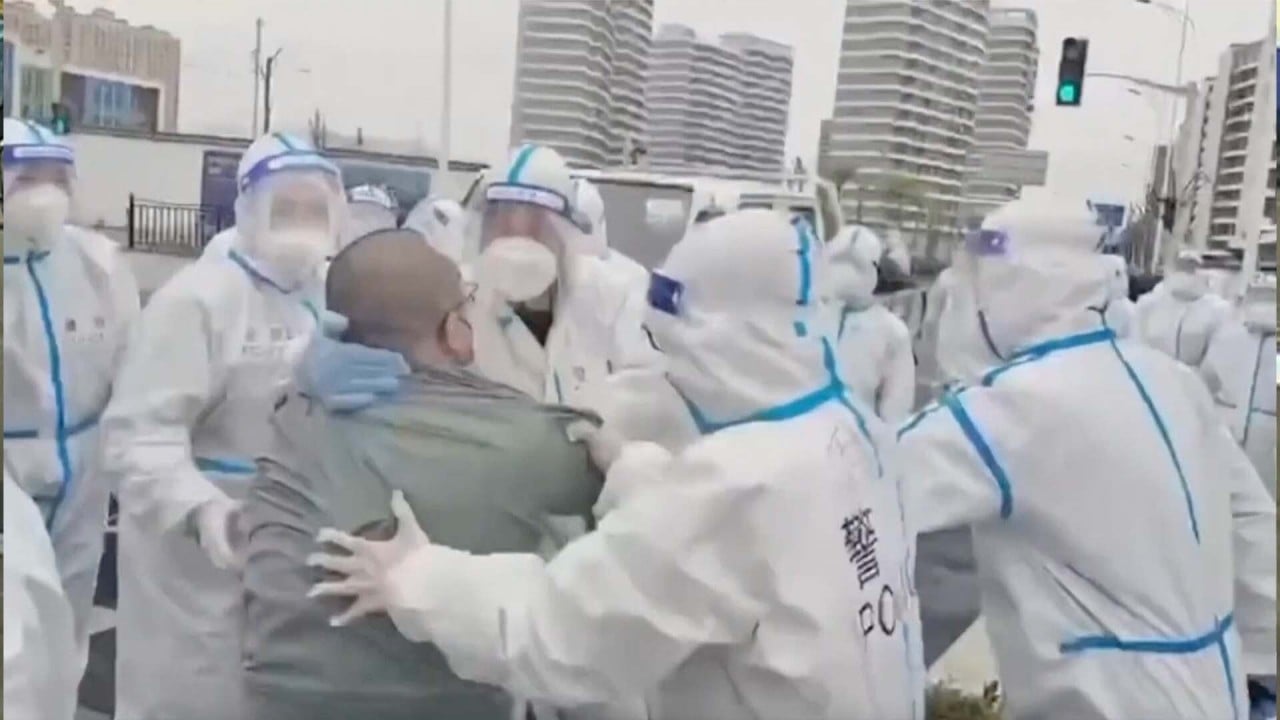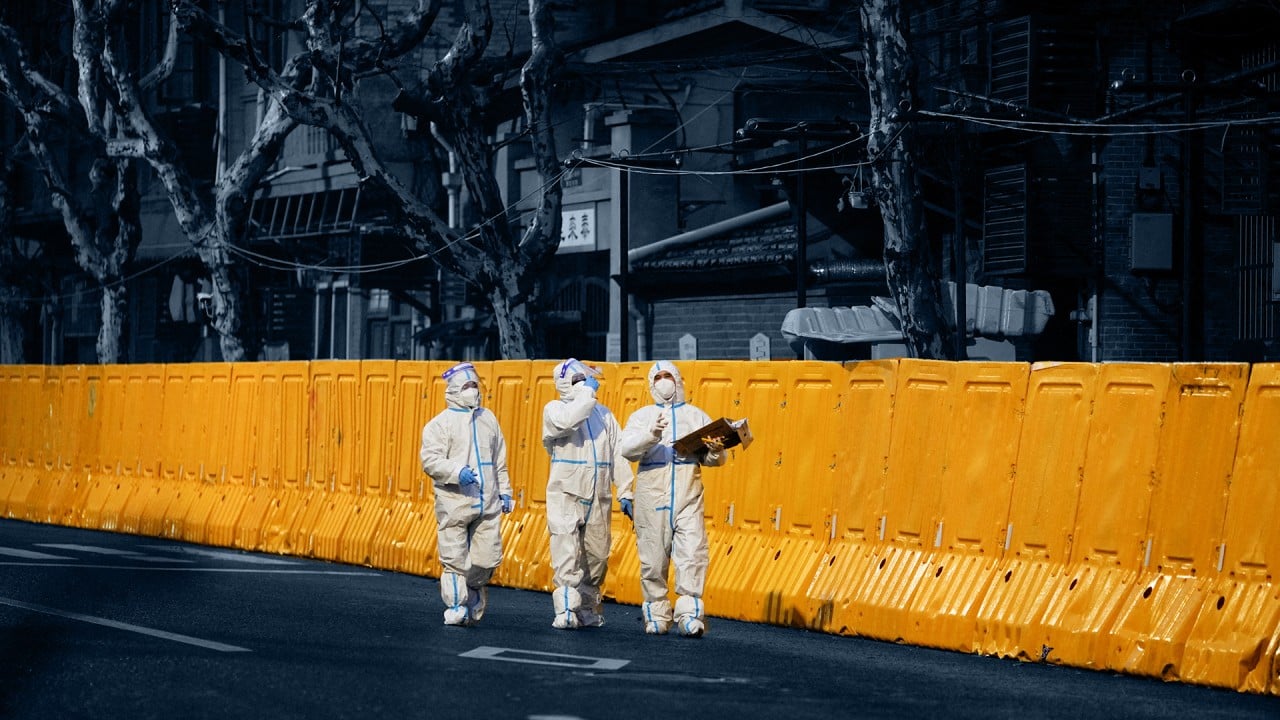
Shanghai’s accidental group-buying heroes: getting food through in the Covid-19 crisis
- With the usual supplies stretched or broken, residents are stepping up and using the power of networking to help their communities
- These grass-roots leaders harness the wisdom of the crowd and bulk orders for collective benefit
It’s 10pm in Shanghai and film producer Frank is hard at work.
Instead of looking through scripts or coordinating a shoot, he is trawling through numbers on a spreadsheet, working out what essentials to get next.
When he places the next order for his residential compound, vegetables will be the top priority.
“There are 57 votes for vegetables, 52 votes for fruit, 49 for meat, and 45 for bread,” he said. Other basics his neighbours listed included oil, rubbing alcohol, spices, toilet paper, and baby milk formula.
Frank – who only wanted to be known by his first name – will be working late the next day too, sorting and distributing goods from a previous order for the community of 1,000 people.
Commenters online have credited them with saving lives and securing essential supplies. In one case, a blogger reportedly organised a delivery of 10,000 eggs for her community.
These grass-roots leaders have helped to ease shortages of food and necessities as Shanghai’s residents struggle with a third consecutive week of lockdown.
The normal food sources have run dry as delivery workers have tested positive for Covid-19, food deliveries and express package services have been overwhelmed, government-provided groceries have been delayed or not reached homes at all, and grocery-shopping apps have been constantly out of stock.
By pulling residents in their neighbourhoods together to place orders for items like food and medicine in bulk, however, group buying leaders have provided a viable way to get their orders high on the priority list.
Shanghai’s ‘Covid coaches’ step up to take some of the stress out of lockdown
Frank became one of these leaders quite by accident. Unlike some other residents who had stocked up well in advance, he went into lockdown with his wife, parents and infant son with only a few days’ worth of food, thinking their confinement would only be for a few days.
By the second week of the lockdown, they had run out of rice and eggs. The last time they had received any food from the government – a lettuce, a few radishes, some tomatoes – was days earlier.
He realised that others in his neighbourhood were in the same predicament, and desperately needed to restock.
About 70 per cent of the residents in his community are in their 70s and not technology-savvy. Frank had to step up.
He connected with residents to ask about their needs, then made an order from an online shop a friend had recommended.
‘Speechless’: health worker’s death amid Shanghai lockdown sparks online furore
Frank said that finding supplies was always the most difficult part.
The Shanghai government publishes official buying channels on WeChat, but multiple leaders said the food sold out fast. Many have had to resort to their own networks, contacting vendors they already knew, online shopping links shared on social media, or dealers of popular brands.
Another “leader”, who did not want to be named, said she got supplies of fish through a vendor a neighbour knew. She also tracked down some soft drinks by making 29 phone calls to a Coca-Cola agent.
“From the beginning, all we cared about was whether they could deliver,” she said.
The Shanghai government has issued “green passes” to businesses deemed essential to the city’s operation, so merchants with the passes can also help deliver essentials to communities.
Frank said that when he placed a group buying order, he checked that the shops had a sales licence and permission from the government to transport. He also asked for a negative nucleic acid test result from the driver within 24 hours before the delivery, to ensure the safety of his neighbourhood.
China’s state media says country must stick to zero-Covid policies
Davida Wu, another group buying leader, is a 35-year-old investor and lives in Puxi.
The ordering process was a lot of trouble, she said, but it was heartwarming to see communities help each other.
When the stock came to the door, all the community staff and security came to help them unload and distribute, she said.
“We are all resorting to saving ourselves now,” she said. “There’s too much uncertainty to rely on the outside. I can’t just wait forever.”
The people in her community are trying to stay inside as much as possible, hoping that there will be no more positive cases so their compound can be declared low-risk and restrictions lifted.
“We wanted to go outside, and see whether the sky colour will be different,” she said.
Frank said that as long as residents still sent him messages seeking help, his term as “group buying leader” would continue.
And the messages keep coming.
“I’m 74, I don’t know much. My son isn’t with me, and two grandchildren need to eat. I’m very concerned. Thank you very much!” one recent message from a resident read.
“A colleague and three children live there, they ran out of food and only have enough rice for two meals. Could you please see what there is to do?” another person asked him.
“Of course, I will help you,” he wrote back. “This is part of my job.”

.jpg?itok=H5_PTCSf&v=1700020945)

